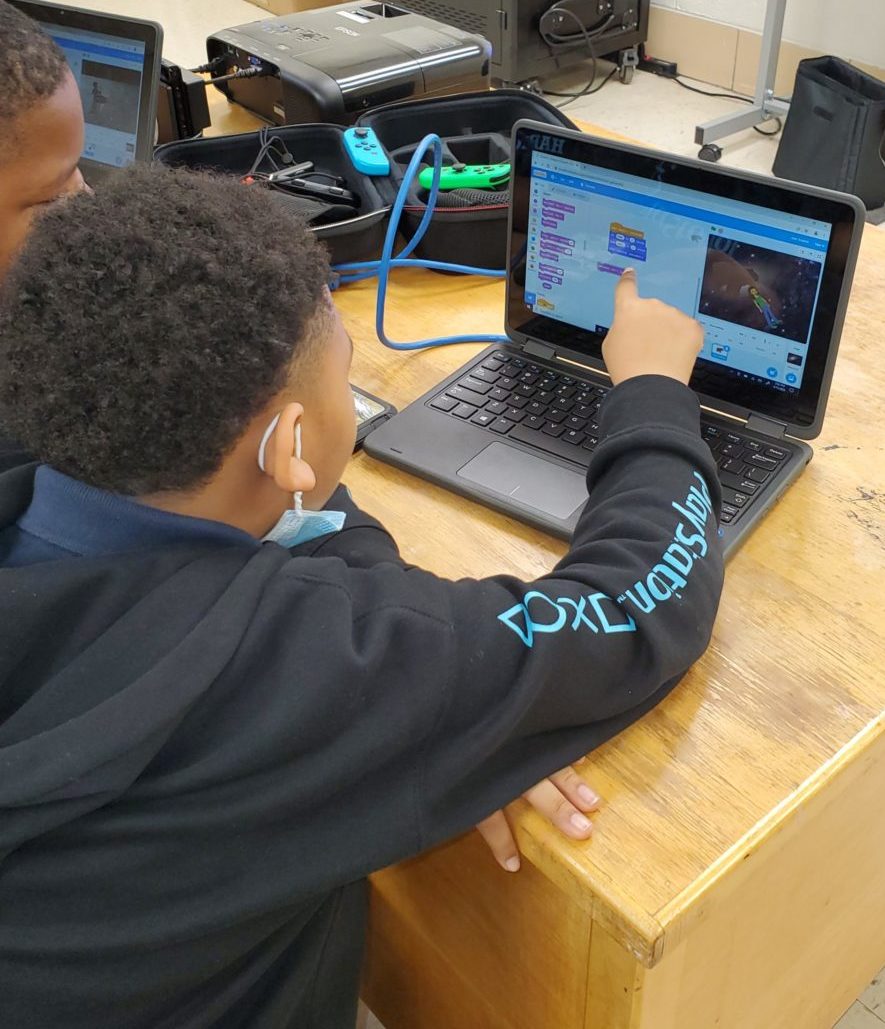Willie Sanders Jr., founder and executive director of Pass IT On, says he helps people from grades “K to 89″ get into information technology.
He never wants anyone to miss any opportunity tech can bring them. And that next wave of opportunity in tech that’s putting a sparkle in his eye? Esports. It could be a game-changer, and he doesn’t want Baltimore’s youth to miss the boat.
Sanders envisions gaming as a gateway to introduce young people to STEM careers. All the elements of video games relate to a path in tech: If people want to create games, that’s computer programming. If they enjoy the music and soundtracks more, that can lead to audio engineering. Even setting up an Xbox and connecting it to the internet reflects the base of a network engineering career, which, at its core, is all about linking devices to a computer network.
Sanders emphasized this applicability when he said, “Video games don’t have to be just a hobby anymore.”
“Most parents wouldn’t balk at their kids participating in basketball or football as a potential pathway to getting to college,” he told Technical.ly. “Look at video games in the same way because it’s the fastest-growing sport in the world right now.”
This realization led to the creation of the Game Changers Club. The program grew out of an alternative middle and high school program to get older kids that may have been held back a grade invested in school. The pilot program went well enough to justify its expansion to Baltimore’s Recreation and Parks centers. Sanders said that the club is available to children this summer through the C.C. Jackson and Rita Church Recreation Centers in Park Heights and Clifton Park, respectively. The program will expand to other designated STEM education centers throughout the city’s recreation facilities in the fall, he added.
Like a YMCA summer basketball league, Pass IT On hopes to build esports teams in different rec centers and create a local league to build talent that can reach a collegiate level.
Esports is becoming a pathway to education as more schools offer scholarships to play games like Overwatch or League of Legends. Figures that NBC News cited from The National Association of Collegiate Esports noted that 200 schools offered close to $16 million in scholarships during the 2018-19 school year. Capitol Tech University in Laurel, Maryland, where Sanders got his doctorate, even has its own esports team and esports management program.
The competitions themselves can also be financially rewarding: Prize pools for games like Fortnite were as high as $1.3 million at a recent tournament, while a Dota 2 competition made history with its highest-ever, $40 million prize pool.
For right now, the program is primarily focused on STEM education that uses video games as a hook to introduce kids to coding, sound engineering, creative writing, graphic design and PC building. Each program runs on an eight-week cycle. Come fall, as the program picks up traction, Sanders imagines big changes for the local gaming industry.
“My hope is that we introduce kids into technologies that make them want to move from being consumers of games to actually being producers of video games,” Sanders said. “[To] have leagues built around indie games that people, or even kids in Baltimore city, have developed. In addition to growing as a technology city, we can grow as a game development city.”







